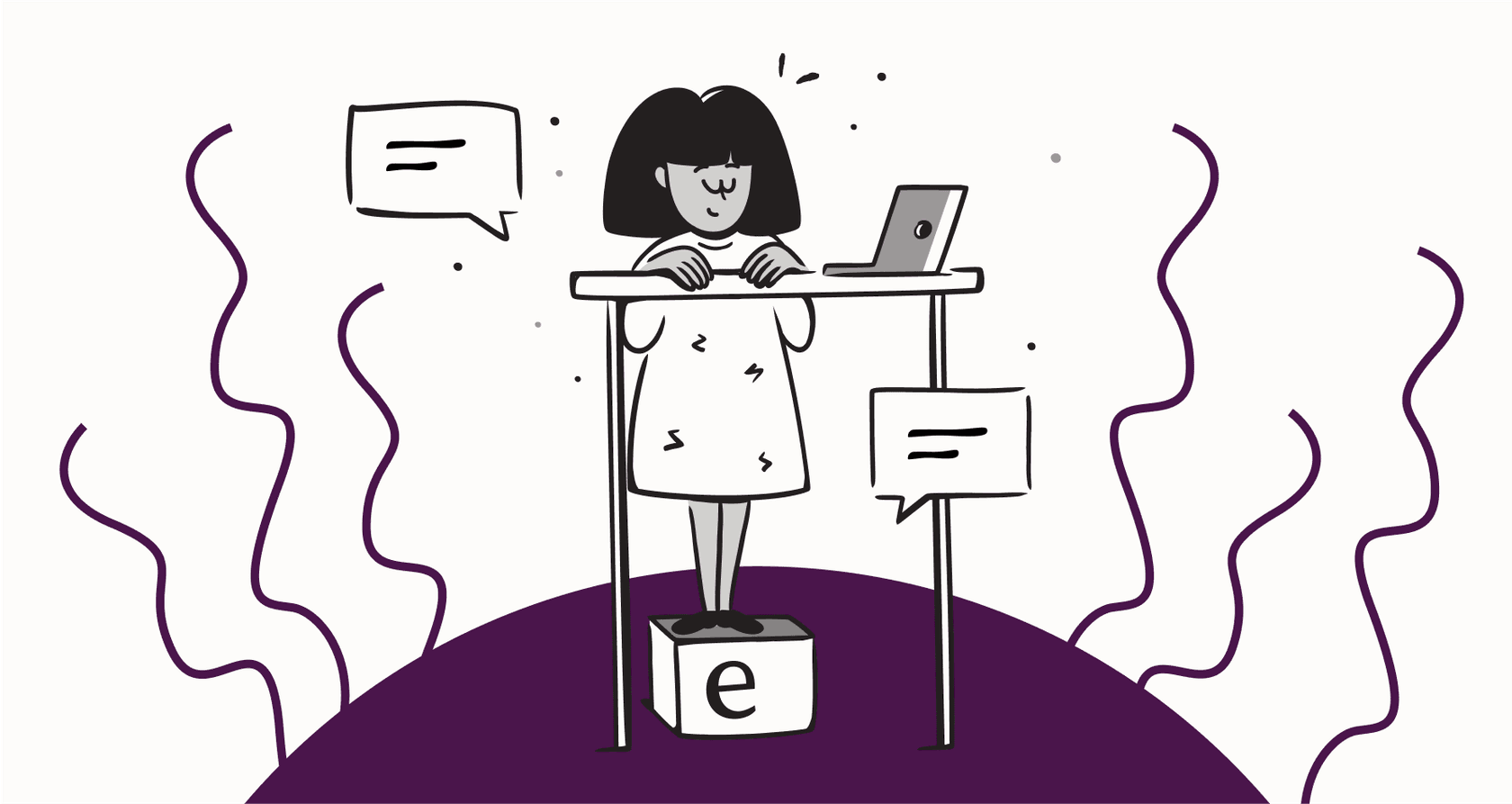The 7 best ClickUp AI alternatives we tested in 2025

Stevia Putri

Kenneth Pangan
Last edited September 15, 2025
Expert Verified

ClickUp is a beast of a project management tool. It really does promise to be the "one app to replace them all," and for some teams, it gets pretty close. But let's be real, that all-in-one approach can sometimes feel like trying to fly a jumbo jet just to get to the corner store. My team was drowning in its complexity, and the constant sluggishness was a real drag on our momentum.
While ClickUp has some seriously powerful features, its "everything but the kitchen sink" model often leads to slow performance, a steep learning curve, and an AI assistant that’s basically trapped within its own walls. If you’re nodding along, you’re in the right place. We've spent time testing the best ClickUp AI alternatives out there, tools that shine where ClickUp stumbles, from lightning-fast performance to specialized AI that actually understands your whole business, not just one piece of it.
What is ClickUp AI?
ClickUp's built-in AI assistant is called ClickUp Brain. Its job is to work inside the platform to help you manage projects more smoothly. It’s mainly there to summarize long task threads and comment chains, generate content for your Docs, and help break bigger tasks down into smaller steps.
And it's genuinely useful for streamlining work inside ClickUp. But that’s also its biggest weakness. ClickUp Brain works in a silo. It only knows what’s happening within the ClickUp universe, which is a huge problem for any team that depends on other tools to get work done.
If your customer support team lives in Zendesk or Intercom, your internal knowledge is stored in Confluence or Google Docs, and your team talks in Slack, ClickUp AI can't see any of it. This creates a knowledge gap where your AI assistant is blind to huge parts of your business, making it impossible to give you truly helpful, context-aware answers. This is where more specialized alternatives come into play.
What to look for in ClickUp AI alternatives
When we started looking for ClickUp AI alternatives, we weren't just searching for a clone. We wanted to solve the core problems that were frustrating us with ClickUp. Here’s the checklist we used to evaluate the tools on this list.
- Performance and speed: A tool needs to be fast and responsive, even with dozens of projects and a large team. Slow loading times were an absolute dealbreaker for us.
- Ease of use: An intuitive interface is a must. You shouldn't need a multi-week training course just to figure out how to create a task. The right tool should simplify your workflow, not make it more complicated.
- Specialized AI capabilities: A generic, one-size-fits-all AI just doesn't cut it anymore. We looked for AI that’s built for a specific job, whether that’s automating support tickets, running advanced data analysis, or helping us find information across the whole company.
- Powerful integrations: The best tools break down information silos by connecting to your entire tech stack. Your AI should be able to pull information from help desks, chat tools, and wikis to give you the full picture.
- Transparent and predictable pricing: Nobody likes surprise fees. After some frustrating pricing changes from other platforms, finding a tool with a clear, predictable pricing model that scales with your needs was more important than ever.
A quick comparison of the top 7 ClickUp AI alternatives
Here’s a quick glance at how the best ClickUp AI alternatives stack up.
| Tool | Best For | Key AI Feature | Starting Price |
|---|---|---|---|
| eesel AI | Support Automation & Unified Knowledge | AI Agent that learns from all company knowledge (tickets, wikis, Slack) | $239/mo (annual) |
| Monday.com | Visual Project Management | AI-powered workflow automation and task generation | $9/user/mo |
| Asana | Structured & Scalable Workflows | AI for goal setting, workload management, and smart summaries | $10.99/user/mo |
| Motion | AI-Powered Scheduling | Auto-scheduling tasks and meetings on your calendar | $19/user/mo |
| SmartSuite | Fast & Flexible Work Management | AI formula generation and content creation within a database structure | $12/user/mo |
| Notion | Integrated Docs & Knowledge Bases | AI for writing, summarizing, and organizing connected documents | $10/user/mo |
| Wrike | Complex & Enterprise-Level Projects | AI for predictive risk analysis and workflow automation | $9.80/user/mo |
The 7 best ClickUp AI alternatives to try in 2025
Let's get into what makes each of these tools a solid alternative to ClickUp.
1. eesel AI
While ClickUp AI is busy trying to organize your internal projects, eesel AI is out on the front lines, automating your support and pulling knowledge from everywhere. This is the key difference: ClickUp manages work, while eesel automates it by connecting to the tools you already have. It plugs right into your help desk (like Zendesk or Gorgias), your chat tools, and all your wikis to provide instant, accurate answers and automate resolutions.
Key Features & eesel AI Advantage:
-
Go live in minutes: Forget about scheduling endless sales demos and dealing with complicated setups. eesel AI is completely self-serve. You can connect your help desk, train your AI on your existing knowledge, and launch a fully functional AI Agent in the time it takes to brew a pot of coffee. No sales call needed.
-
Unified knowledge: This is where eesel really pulls ahead. It trains on your past support tickets, help center articles, and internal docs in Confluence or Google Docs. It automatically learns your brand voice, understands the context of past issues, and finds solutions buried in historical conversations. This allows it to give hyper-relevant answers that a generalized AI could never come up with.
-
Risk-free simulation: Worried about letting an AI loose on your customers? I was too. eesel AI lets you test your setup on thousands of your past tickets in a safe sandbox. You get solid forecasts on resolution rates and can see exactly how the AI will respond before it ever touches a live customer chat. This gave us the confidence to actually roll it out.
-
Customizable workflow engine: You get full control. You can decide exactly which tickets the AI handles, whether it's simple T1 questions or more complex stuff. You can set it up to escalate anything it's unsure about and even give it the power to do things like tag tickets, update fields, or make API calls to look up order info in Shopify.
Pricing: eesel AI’s Team plan starts at $239/month when billed annually. The pricing is transparent and based on AI interactions, so you don't get a surprise bill just because you had a busy month.
2. Monday.com
If you find ClickUp's interface cluttered and slow, Monday.com will feel like a breath of fresh air. It offers a clean, visual, and incredibly responsive platform for managing projects. Its boards are intuitive and color-coded, making it easy to see where every project stands with just a glance.
The AI features in Monday.com are built to support this visual approach. It’s pretty good at generating task lists from project briefs, drafting status updates, and creating formulas for your custom dashboards. But just like ClickUp, its AI is focused on improving its own internal workflows. It's a fantastic project management tool, but it’s not going to help you automate customer-facing work or pull knowledge from other systems.
Pricing: Starts at $9 per user per month.
3. Asana
For teams feeling a bit lost in ClickUp’s endless (and often confusing) customization options, Asana provides a more structured path. It gently guides you toward best practices for project management, which can be a huge relief if you're not a certified project manager.
Asana Intelligence, its AI tool, is focused on improving clarity and keeping everyone aligned. It’s great at creating smart summaries of project progress, helping you track goals, and offering personalized workload recommendations to prevent team burnout. It’s a solid tool for keeping large, cross-functional teams on the same page, but its AI is still locked within the Asana ecosystem.
Pricing: Starts at $10.99 per user per month.
4. Motion
Motion is less of a direct ClickUp competitor and more of a specialized alternative for anyone whose biggest challenge is just managing their own time. If you feel like ClickUp is total overkill for planning your day, Motion uses AI to do it for you, and it does it intelligently.
Its AI automatically schedules tasks from your to-do list right onto your calendar. It's smart enough to reorganize your entire day on the fly when an urgent task or a last-minute meeting pops up. It's the perfect tool for individuals and small teams who need a smart planner, not a heavy-duty project management suite.
Pricing: Starts at $19 per user per month.
5. SmartSuite
SmartSuite consistently gets praise for its speed, making it a strong contender against ClickUp. It does a great job of blending the functionality of spreadsheets, databases, and project management tools into one flexible and snappy platform.
Its AI Assistant works within this dynamic setup. It can generate complex formulas for you, write content directly within your records, and summarize large amounts of data in seconds. SmartSuite is a great fit for teams that need a highly customizable, database-driven system for their operations but can’t stand the performance lag that often comes with ClickUp.
Pricing: Starts at $12 per user per month.
6. Notion
For teams whose work centers around documentation, Notion is a top-tier choice. It’s a knowledge base first and a project manager second, rather than the other way around.
Notion AI is woven deeply into its writing and database blocks. It’s brilliant at summarizing meeting notes, drafting articles from a simple prompt, translating text, and organizing information across its network of linked pages. If your idea of a "project" is more about building a central brain for your team, Notion is an excellent fit. Just keep in mind that its AI is at its best when it's working with information that already lives inside Notion.
Pricing: Starts at $10 per user per month.
7. Wrike
For large organizations that find ClickUp's security and reporting a bit lacking, Wrike offers a robust, enterprise-level solution. Its AI is built to handle complex workflows and deliver predictive insights that can help guide big decisions.
Wrike’s AI really shines with its risk prediction, which can flag potential project delays before they become real problems. It also offers intelligent search across thousands of projects and can automate intricate, multi-step approval processes. Wrike is built for teams that need granular permissions, advanced security, and sophisticated analytics that go beyond what ClickUp can offer.
Pricing: Starts at $9.80 per user per month.
This comparison of top AI project management tools shows how different platforms, including several ClickUp alternatives, are leveraging AI to improve workflows.
How to choose the right ClickUp AI alternatives
Switching tools is a big move, so here are a few things we learned that might help you land on the right one.
First, identify your main goal
Before you even look at a feature list, ask yourself what problem you're actually trying to solve. Is it about organizing internal tasks better, or is it about automating customer support? The AI in a project management tool just isn't built to solve a support team's problems.
Prioritize integrations
Your new tool should plug in smoothly with the platforms your team uses every single day. Don’t just trade one information silo for another.
Test your chosen alternative with real-world scenarios
Almost every tool on this list offers a free trial. Use it. Test the AI with your actual data and workflows. A polished demo can look amazing, but you need to see how it handles your real-world complexity before you commit.
Look for simulation features
This is a must-have for any AI that will interact with your customers. A platform that lets you test its performance on your past data gives you the confidence to go live without risking your customer experience. This is where a solution like eesel AI really stands out, by showing you the exact impact it will have before you flip the switch.
Move beyond "all-in-one" and pick the right ClickUp AI alternatives for the job
ClickUp is a capable tool, but its "one-size-fits-all" approach means its AI often feels like a jack-of-all-trades and master of none. It can help organize the work inside its own platform, but the real work happens across dozens of different apps.
For pure project management, alternatives like Monday.com and Asana offer a more focused, stable, and user-friendly experience. Their AI is tailored to make that specific job easier.
But if your goal is to automate support, connect knowledge scattered across your entire company, and give instant, accurate answers to both your customers and your team, then you need an AI platform built for that purpose. That's where a generalist project management tool will always fall short.
See how eesel AI can transform your support workflows. Start your free trial or book a demo today.
Frequently asked questions
Hands down, the most important feature is powerful integrations. You need an AI that can connect to all your core apps, like your help desk, wiki, and chat tools, to get a complete picture of your business knowledge instead of being stuck in a silo.
For a support team, you should look for alternatives built specifically for customer service automation, like eesel AI. These tools connect directly to your help desk and are designed to resolve customer tickets, something a general project management AI can't do.
Yes, many alternatives prioritize speed and a clean user experience. Tools like Monday.com and SmartSuite are known for being much faster and more intuitive than ClickUp, which is a major reason so many teams decide to switch.
Often, yes. The best approach is to use a dedicated project manager like Asana for internal tasks and a specialized AI platform like eesel AI for customer-facing automation. This "best-of-breed" strategy usually yields better results than trying to force one tool to do everything.
Tools designed for a specific purpose are often the quickest to set up. For instance, eesel AI is self-serve and can be live in minutes because it's focused on one job, while platforms like Wrike may require a more involved, enterprise-level implementation.
Share this post

Article by
Stevia Putri
Stevia Putri is a marketing generalist at eesel AI, where she helps turn powerful AI tools into stories that resonate. She’s driven by curiosity, clarity, and the human side of technology.





